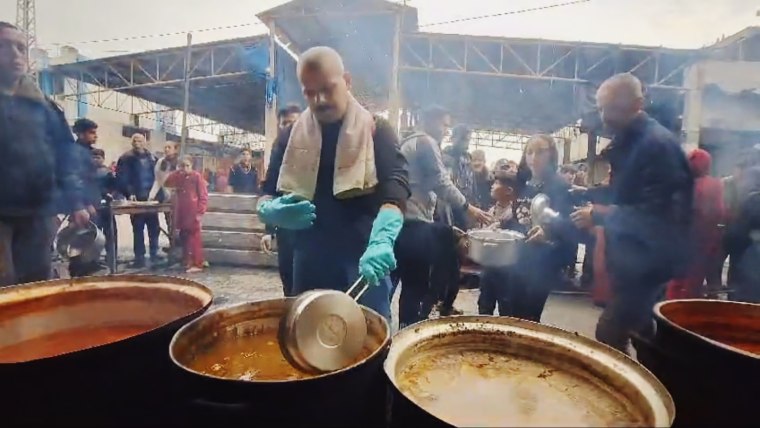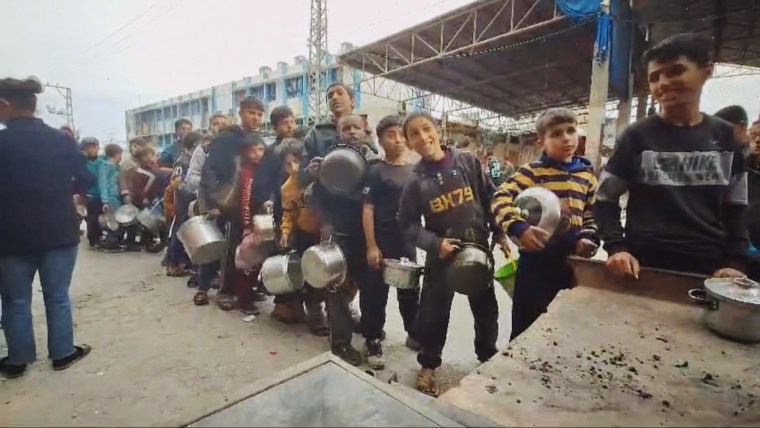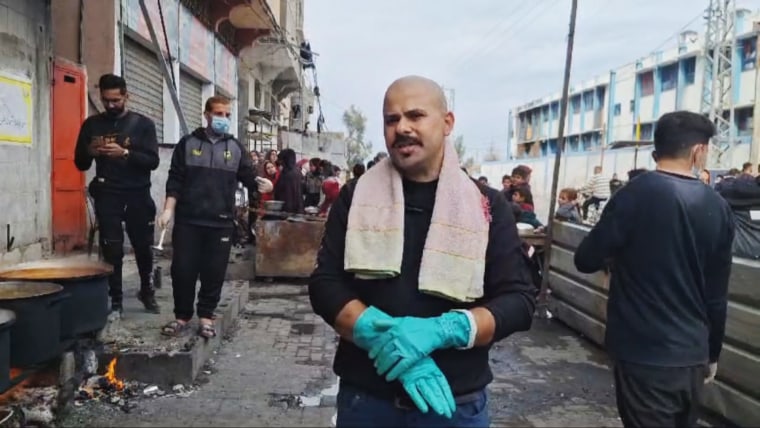ALEXANDRIA, Va. — Hani Almadhoun was watching his family in the Gaza Strip slowly starve and knew he had to do something.
From thousands of miles away, and increasingly frustrated with the lack of humanitarian aid reaching Palestinians, he worked with his younger brother Mahmoud, trapped in the war zone, to create a small family soup kitchen.
Famine is imminent in Gaza, where most of the population is already facing “catastrophic” levels of hunger, according to a United Nations-backed report.
The desperate need is even more critical now, with some aid groups pausing operations there after seven World Central Kitchen workers were killed by Israeli bombs while delivering humanitarian aid earlier this week, which Israel has called a “grave mistake.”
The Almadhoun brothers have already lost many relatives and friends to the six-month war. Now they are working to save others from starvation, including their parents.
“They grinded corn and grain meant for rabbit and pigeons,” Hani, the elder brother, said. “This broke me.”

The soup kitchen started small, with Mahmoud, the younger brother, cobbling together some tomato paste, cooking oil and just enough wood to burn a fire.
“There are no farmers,” he told NBC News. “We collected the potatoes and carrots that had already come from the rainwater.”
The first stews fed about 120 families, with hundreds more returning in the days that followed, providing “the nourishment for people who literally have no other options,” Hani said.
Now, the soup kitchen is sustaining around 3,000 people daily, with hopes to be able to serve more.
“We’re not serving strangers. We’re serving people we grew up with,” he said.
Basic ingredients are expensive in the besieged enclave, where staples like rice and flour are “out of reach” for most people, Hani said.

“Our children were starving to death,” a 45-year-old Palestinian woman receiving a hot meal told NBC News. “They go to sleep hungry, and they wake up hungry.”
Hani has been able to raise hundreds of thousands of dollars online, which then goes directly to his family in Gaza so they can purchase food items locally at a premium.
The grassroots operation avoids much of the red tape most international aid agencies encounter when trying to get humanitarian relief into Gaza, which has only been a fraction of what went in before the war started.
“The joy I receive every day when I wake up to see these images and pictures, that’s the one thing that allows me to open my eyes because I’m horrified,” Hani said.
GoFundMe, which says it authenticates how the funds are used in compliance with international laws, has seen a spike in donations since the beginning of Ramadan last month. The soup kitchen project alone has raised $250,000 in the last two weeks.

Now, the Almadhoun family is expanding its efforts for a second soup kitchen in Rafah, Gaza's southernmost city. More than 1.4 million people are estimated to be sheltering there, as Israel says it still plans to launch a large-scale military ground offensive there at some point.
Even if there is a cease-fire before that, the family knows that getting people fed will still be a huge challenge. They hope to open even more locations, if possible, with the money they’ve raised.
The mission has bonded the brothers in ways they never imagined, they said.
“This is my, like, punk little brother and now he’s doing something good,” Hani said. “It’s really just the beautiful distraction every single family member of ours needed.”
For them, providing a hot meal to someone in a war zone is about much more than fueling a basic human need.
“It means survival,” Hani said. “It means somebody sees you.”
